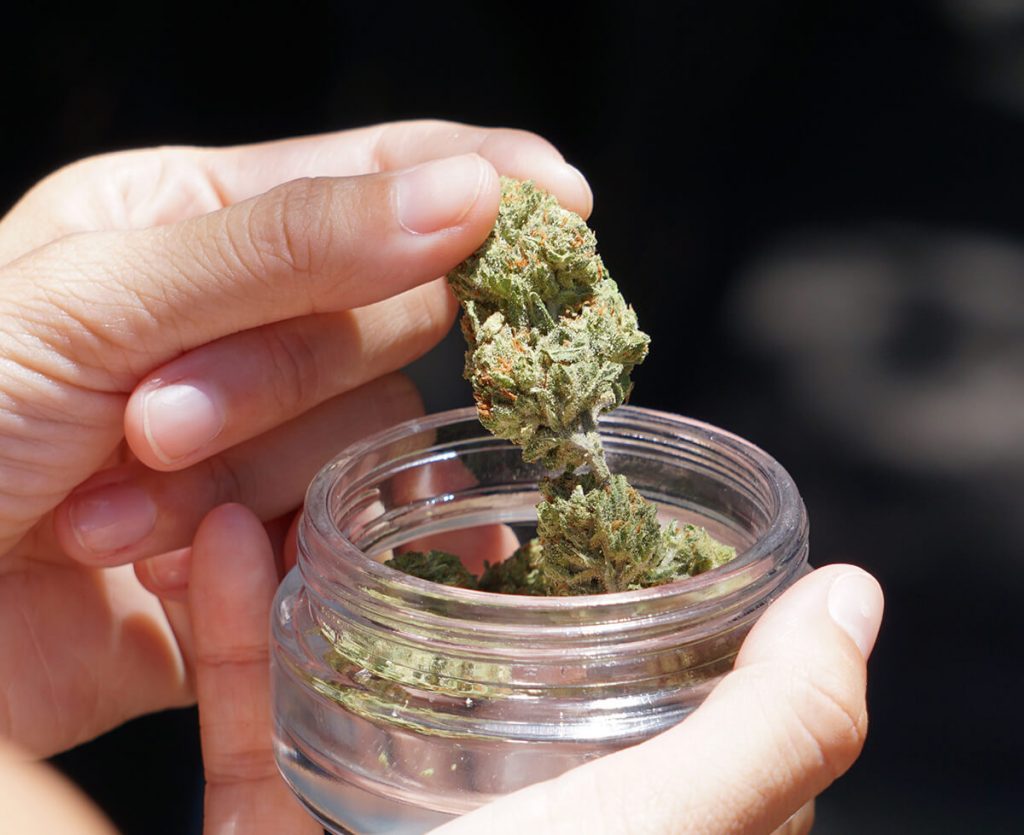Delta 8 flower and CBD are two popular products derived from cannabis plants, but they have distinct differences in their composition, effects, and legal status. Delta 8 THC, or Delta-8-tetrahydrocannabinol, is a cannabinoid found in cannabis that is chemically similar to Delta 9 THC, the primary psychoactive compound in marijuana. Delta 8 is known for its milder psychoactive effects compared to Delta 9, offering a more subtle high that many users find pleasant and manageable. It can produce effects such as relaxation, euphoria, and altered sensory perception, but generally with less intensity than Delta 9 THC. This makes Delta 8 an appealing choice for those seeking a gentler alternative to traditional THC products. CBD, or cannabidiol, is another cannabinoid derived from cannabis, but it is non-psychoactive. Unlike Delta 8 THC, CBD does not produce a high. Instead, it is renowned for its potential therapeutic benefits.
 CBD interacts with the endocannabinoid system in the body, which plays a role in regulating various physiological processes. Users turn to CBD for its potential to alleviate symptoms such as anxiety, chronic pain, inflammation, and sleep disorders. The lack of psychoactive effects makes CBD an attractive option for those who prefer to avoid the mind-altering effects of THC while still seeking potential health benefits. The legal status of Delta 8 THC and CBD also varies. Delta 8 THC occupies a gray area in U.S. law. While it is derived from hemp and is often marketed as legal under the 2018 Farm Bill, which legalized hemp-derived cannabinoids, some states have moved to restrict or ban its sale due to its psychoactive effects. Therefore, its legality can vary significantly depending on the jurisdiction. In contrast, CBD has a clearer legal standing. CBD derived from hemp with less than 0.3% THC is federally legal in the United States. However, states may have their own regulations, so it is important to check local laws.
CBD interacts with the endocannabinoid system in the body, which plays a role in regulating various physiological processes. Users turn to CBD for its potential to alleviate symptoms such as anxiety, chronic pain, inflammation, and sleep disorders. The lack of psychoactive effects makes CBD an attractive option for those who prefer to avoid the mind-altering effects of THC while still seeking potential health benefits. The legal status of Delta 8 THC and CBD also varies. Delta 8 THC occupies a gray area in U.S. law. While it is derived from hemp and is often marketed as legal under the 2018 Farm Bill, which legalized hemp-derived cannabinoids, some states have moved to restrict or ban its sale due to its psychoactive effects. Therefore, its legality can vary significantly depending on the jurisdiction. In contrast, CBD has a clearer legal standing. CBD derived from hemp with less than 0.3% THC is federally legal in the United States. However, states may have their own regulations, so it is important to check local laws.
In terms of their effects, best delta 8 flower serve different purposes. Delta 8 is sought after for its psychoactive properties and its ability to provide a mild, relaxing high. It is often used recreationally, but some also find it helpful for managing stress and anxiety. CBD, on the other hand, is primarily used for its potential therapeutic benefits. It is popular among those who are looking for relief from various health issues without the psychoactive effects associated with THC. In summary, Delta 8 flower and CBD offer different experiences and benefits. Delta 8 provides a mild psychoactive effect with potential recreational benefits, while CBD offers therapeutic advantages without altering mental state. Their legal status varies, with Delta 8 being more legally ambiguous and CBD having clearer federal legality but still subject to state regulations. Understanding these differences can help individuals choose the product that best suits their needs and preferences.


